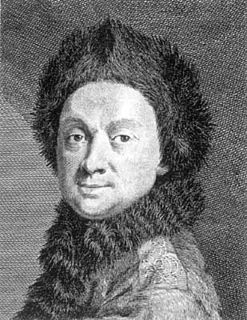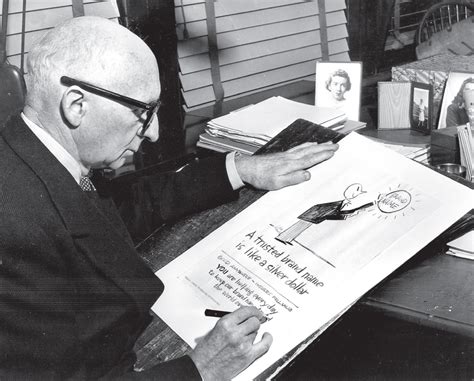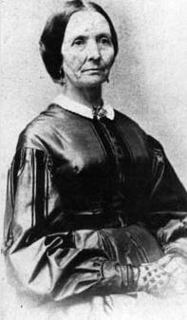A Quote by Alexander Hamilton
I go further, and affirm that bills of rights, in the sense and to the extent in which they are contended for, are not only unnecessary in the proposed Constitution, but would even be dangerous. They would contain various exceptions to powers not granted; and on this very account, would afford a colorable pretext to claim more than were granted. For why declare that things shall not be done which there is no power to do?
Related Quotes
The complete independence of the courts of justice is peculiarly essential in a limited Constitution. By a limited Constitution, I understand one which contains certain specified exceptions to the legislative authority. Limitations of this kind can be preserved in practice no other way than through the medium of courts of justice, whose duty it must be to declare all acts contrary to the manifest tenor of the Constitution void. Without this, all the reservations of particular rights or privileges would amount to nothing.
It would reduce the whole instrument to a single phrase, that of instituting a Congress with power to do whatever would be for the good of the United States; and as they would be the sole judges of the good or evil, it would be also a power to do whatever evil they please . . . . Certainly no such universal power was meant to be given them. It [the Constitution] was intended to lace them up straightly within the enumerated powers and those without which, as means, these powers could not be carried into effect.
[E]very act of a delegated authority, contrary to the tenor of the commission under which it is exercised, is void. No legislative act, therefore, contrary to the Constitution, can be valid. To deny this, would be to affirm, that the deputy is greater than his principal; that the servant is above his master; that the representatives of the people are superior to the people themselves; that men acting by virtue of powers, may do not only what their powers do not authorize, but what they forbid.
Independent experts have looked at what I've proposed and looked at what Donald's [Trump] proposed, and basically they've said this, that if his tax plan, which would blow up the debt by over $5 trillion and would in some instances disadvantage middle-class families compared to the wealthy, were to go into effect, we would lose 3.5 million jobs and maybe have another recession.
Emergency does not increase granted power or remove or diminish the restrictions imposed upon power granted or reserved. The Constitution was adopted in a period of grave emergency. Its grants of power to the federal government and its limitations of the power of the States were determined in the light of emergency, and they are not altered by emergency.
I discovered several never-failing signs by which one might know when a man wished to take another wife. He would suddenly 'awaken to a sense of his duties'; he would have serious misgiving as to whether the Lord would pardon his neglect in not living up to his privileges; he would become very religious, and would attend to his meetings ... which seemed just then to be very numerous, and in various other ways he would show his anxiety to live up to his religion.
The fact would seem to be, if in my situation one may speak of facts, not only that I shall have to speak of things of which I cannot speak, but also, which is even more interesting, but also that I, which is if possible even more interesting, that I shall have to, I forget, no matter. And at the same time I am obliged to speak. I shall never be silent. Never.
However dangerous might be the shock of a comet, it might be so slight, that it would only do damage at the part of the Earth where it actually struck; perhaps even we might cry quits if while one kingdom were devastated, the rest of the Earth were to enjoy the rarities which a body which came from so far might bring it. Perhaps we should be very surprised to find that the debris of these masses that we despised were formed of gold and diamonds; but who would be the most astonished, we, or the comet-dwellers, who would be cast on our Earth? What strange being each would find the other!
The apostles were very sure that everything of theirs which had to do with salvation was a gift to them from God. 'Increase our faith'. They did not presume that the fullness of faith would come to them merely because they freely opted for it. They believed, rather, that it was a gift of God which would have to be granted to them.
If I had my life to live over, I would try to make more mistakes. I would relax. I would be sillier than I have been this trip. I know of very few things that I would take seriously. I would be less hygienic. I would go more places. I would climb more mountains and swim more rivers. I would eat more ice cream and less spinach. I would have more actual troubles and fewer imaginary troubles.
I heard the prophet Joseph Smith say the time would come when this nation would so far depart from its original purity, its glory, and its love for freedom and its protection of civil rights and religious rights, that the Constitution of our country would hang as it were by a thread. He said, also, that this people, the sons of Zion, would rise up and save the Constitution and bear it off triumphantly.
There would be a blaze and a confusion, in which timid men would doubt whether the constitution would be burned to tinder or only illuminated; but that blaze and that confusion would be dear to Mr. Daubney if he could stand as the centre figure, the great pyrotechnist who did it all, red from head to foot with the glare of the squibs with which his own hands were filling all the spaces.































